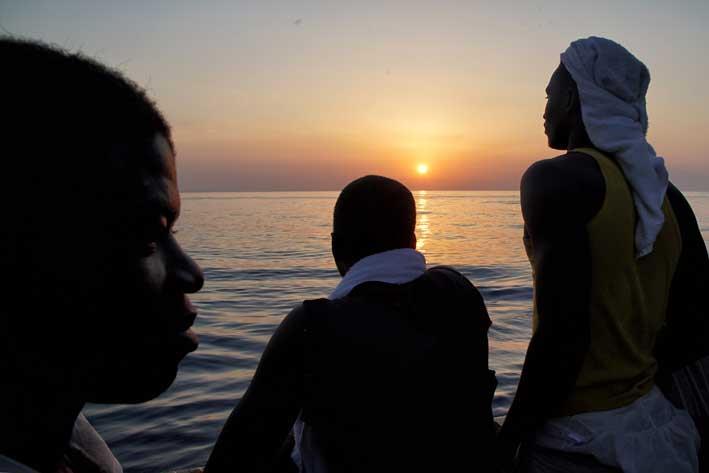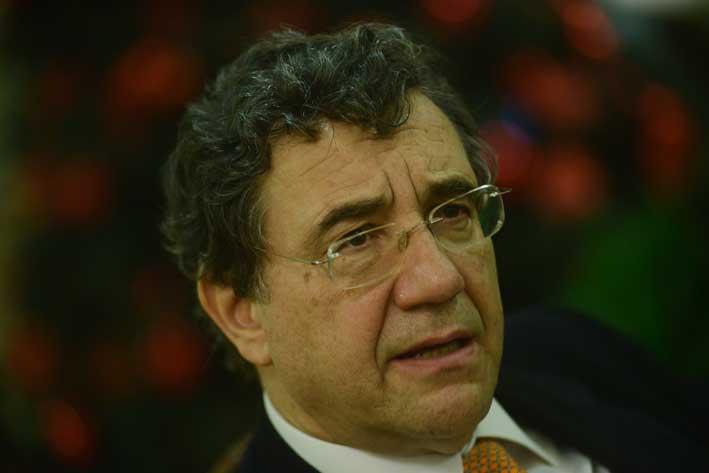The European Union is working with African countries in an effort to resolve the issue of illegal migration, Spanish Ambassador and EU Special Representative to the Sahel Region Ángel Losada Fernandez told The Malta Independent on Sunday.
Maltese immigration officers recently arrested 33 Malian migrants who had been living in Malta illegally for a number of years. Four of them were later released, following a review by the Office of the Refugee Commissioner.
Prime Minister Joseph Muscat had explained that the EU has signed agreements with third countries that are willing to accept nationals who do not qualify for asylum status. He also said that migrants will only be deported to countries of origin that are safe. News reports said that some of these 29 migrants had lived in Malta for as long as eight years.
Asked whether sending these people back is the right thing to do, given that some of them had been in Malta for a number of years and might very well have arrived here when they were in their teens, Special Representative Fernandez said: “Migration raises many personal questions that are sometimes very complicated and I understand that. We must face the problem on a general basis and work together with African countries rather than identify with specific situations. That is the way we are handling it. We must not see one problem identified, although I know they are human beings and have real problems, as the only way to face the problem is by using a general view. We are working together with African states, and the EU policy – which is established by all member states with EU institutions – wants the whole process to occur through collaborative work with African states.”

There has been a civil war in Mali, and the situation there is not exactly calm. Given the security concerns in these countries, can the EU really hope to make a difference before such problems are sorted out?
I am a member of the mediation team handling the Malian peace process. Next week I will attend a monthly meeting of the Peace Agreement Monitoring Committee in Mali. I’m not saying that the problems are over, but there have been two major achievements. Firstly, nobody puts the territorial integrity of Mali into question. Three years ago, there was a separated area within Mali claiming independence, and now nobody is saying that the integrity of Mali is in jeopardy. In addition, all the different movements that were fighting each other are now under the same roof, talking around a table. The peace agreement did not go as fast as we had hoped, but neither did it go as slow as we had feared. Municipal elections have been held this week. It is true that one side did not want an election, but with the help of the UN and close EU cooperation, we managed to pursue this goal and are attempting to bring back the authority of the Malian state to all the territory.
The EU is actively participating in the peace process, and is a guarantor of the agreement. There are some problems which have arisen in the central part of the country, and we need to take these into consideration as well.
Turning to remittances, couldn’t sending people back affect this?
Migration itself is good. The history of mankind is a history of migration, and we should not be afraid of it. Remittances [money sent back to country of origin] are important from an economic point of view, but we mustn’t forget the Trust Fund, as well as other economic programmes offered by the EU.
For instance, remittances is an important issue for Mali. We need to ease and facilitate remittances from legal migrants in Europe which are also helping EU countries develop. Migration itself is not wrong, human trafficking is wrong and that is what must be fought.

The EU has pledged that the rights of all irregular migrants sent back will be protected and upheld. How is it doing this?
We are dealing through what we call ‘compacts’, which involve all aspects of relations with the countries in question. Of course, the EU values of human rights and democracy are always above everything and are at the substance of our action.
The Sahel region is regularly hit by humanitarian crises. Is sending aid enough, or do you believe more needs to be done? What is the EU doing to help the Sahel region?
The EU drafted a specific strategy based on two pillars – security and development – which go hand-in-hand. This is why we are working on the security aspect of the Sahel region together with our African friends. We have instruments related to the security aspect in place through our PSDC missions, along with the will for African countries to create a new organisation called the G5, and we are working together in the security sector to help them build and maintain sovereignty over all their territories. We also have financial instruments which will oversee around €3.5 billion in aid for these countries between 2015 and 2020.
In addition, there is also the new financial instrument, activated here in Malta during the Valletta EU-Africa Summit, which set up a trust fund to help tackle the deep roots of the migration phenomena. These are everything – from radicalisation, resilience, development, youth and also border-control management, which is a main element of our action. We have around €1.1 billion in funds for the Sahel, half of which has already been spent on more than 36 projects, ranging from border management controls to resilience programmes. Is it enough? Never, but the EU is committed to tackling this problem, as shown in Valletta when the Trust Fund was approved.

What happens in the Sahel region affects North Africa. Is this just due to migration or are there other economic links?
I have met your Foreign Affairs Minister, as well as the EU Funds and Presidency Parliamentary Secretary, to see Malta’s EU Presidency plans and these are exactly the same as with the EU. My mandate is to establish a dialogue between Europe, the Sahel and Maghreb and this is the only way to tackle the problem. The crisis in the Sahel is a regional crisis and needs to be tackled from a regional perspective – there is no other way. The Malta authorities are very well-prepared and intend to face the challenges from a regional perspective. We will work very closely together in order to try and pursue this.
The loss of life in the Mediterranean is very well known to Europeans, but there is also the lesser known death toll of irregular migrants crossing the Sahara desert. Does the EU have any ideas how to help stop the loss of life in that region?
We have to speak with our African colleagues, who are very conscious that the people dying in the Sahara are their citizens. We have to work with them. We are not working for Africa, but with Africa, and every action we take is being taken together with them.
In the Agadez region of Niger, the EU is discussing the establishment of an antenna in order to face all the problems of illegal trafficking. The irregular migration crisis is a global problem.

The EU is working on stabilising the region, but the region itself is destabilised. The arguments I’ve heard is that the resulting irregular migration crisis will be a problem for many years.
We are trying to fight irregular migration – and the criminal networks involved – in cooperation with African countries. If we manage, I believe we will be able to stop illegal migration. Illegal migration is not good for anyone, including the countries of origin and Europe, as it also entails a whole net of trafficking – including drugs and arms trafficking. We need to control this through closer cooperation with African nations.
Countries in Europe are more conscious of the Sahel region, and my objective is to also show how the Sahel and Maghreb regions are linked together, and the importance of working together. What will happen in 20 years? I do not know.